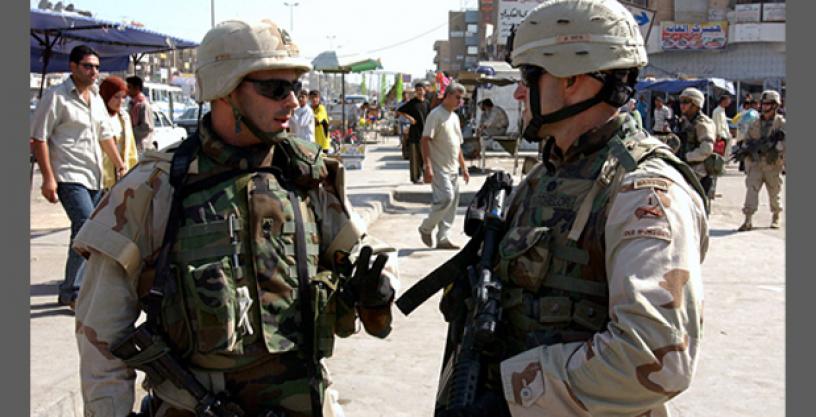New effort aims to seal organizational knowledge gaps caused by frequent military personnel changes

Jun 21, 2021
A challenge for the military, whose members change duty stations every few years and deploy regularly, is ensuring efficient and effective knowledge handover during transitions. Currently, the transfer of key organizational task information and understanding of unique local issues is largely ad hoc: onboarding briefings, right-seat/left-seat rides, conversations, knowledge management (KM) databases, lessons learned reports, turnover folders, emails, and even handwritten notes – all of which require time-consuming manual collection, maintenance, and dissemination that are prone to gaps.
To prevent vital knowledge from falling through the cracks or being filed away where no one knows to look for it, DARPA announced the Knowledge Management at Scale and Speed (KMASS) program. KMASS aims to research, develop, integrate, evaluate, and demonstrate underlying technology that would enable effective use of documented knowledge, acquisition of new knowledge as part of regular workflows, and application of useful knowledge when and where it is required and with necessary granularity. Technology developed under KMASS could enable a future knowledge management system that would update information automatically and push it to newly arrived personnel just when they need it. A Proposers Day webinar for potential proposers is scheduled for July 7, 2021, from 10:00 a.m. – 4:30 p.m. EDT.
“Capturing knowledge, along with its context as it is created, currently requires a dedicated effort on the part of the person performing the task that often does not happen,” said Ted Senator, KMASS program manager in DARPA’s Defense Sciences Office. “Even if knowledge is captured, applying stored knowledge requires a user to know that it exists, where it exists, when it is needed and relevant, how to retrieve it, and how to locate the specifics in what typically is a multi-page document or several-minute-long video or audio file. Applying stored knowledge with existing KM systems and information transfer methods may not always be possible given time constraints.”
KMASS aims to break the ad hoc nature of knowledge transfer by efficiently collecting all kinds of knowledge in a non-intrusive way – while the knowledge is fresh and easy to recall – throughout a person’s tour. The information would then be available in response to questions relevant to specific topics as they come up. Rather than users having to conduct time-consuming searches through full documents, audio files, and videos, KMASS would do that automatically and deliver specific knowledge “nuggets” relevant to a current task—whether the user requests the knowledge or not—exactly when needed, while avoiding irrelevant or already known information. This personalized knowledge sharing concept is a core tenet of KMASS referred to as “JustINs” – i.e., just in time, just enough, and just for me.1
“KMASS would enable a push and pull of knowledge as it’s needed, rather than relying on an initial firehose information transfer at the beginning of a new tour of duty, much of which will be forgotten because it’s not immediately relevant,” Senator said. “If successful, KMASS will enable development of an advanced, continuously updated, and accessible system to ensure continuity of knowledge applicable to deployment rotations, new duty assignments, and shift changes. KMASS would also capture and transfer knowledge from seasoned NCOs, officers, and civilians whose decades of valuable experience is often lost to an organization once they retire.”
KMASS is focused on advancing three key complementary areas: organizing background knowledge, capturing local knowledge, and disseminating contextualized knowledge usefully, appropriately, and on time.
For more information on the KMASS webinar Proposers Day, including registration details, please visit: https://go.usa.gov/x6P9y.
Image caption: An Army battalion commander (right) listens to a member of the unit his battalion is replacing describe the different ways of patrolling a local marketplace. This knowledge transfer took place as part of a right-seat ride for the incoming battalion during a unit rotation in Iraq in the early 2000s. (Army photo)
# # #
Media with inquiries should contact DARPA Public Affairs at outreach@darpa.mil
Associated images posted on www.darpa.mil and video posted at www.youtube.com/darpatv may be reused according to the terms of the DARPA User Agreement, available here: http://go.usa.gov/cuTXR.
Tweet @darpa
1Rosenberg, M. J. (2001). E-learning: Strategies for delivering knowledge in the digital age. New York: McGraw-Hill
